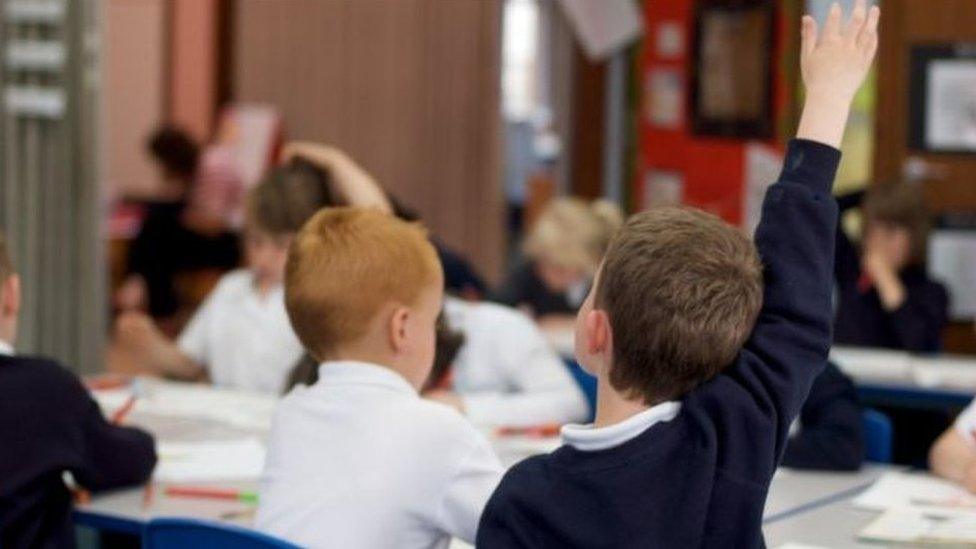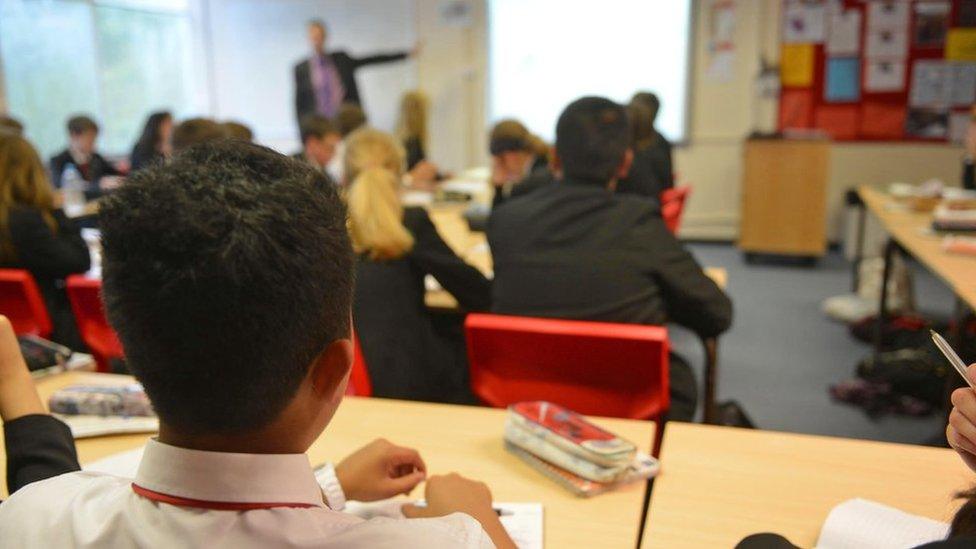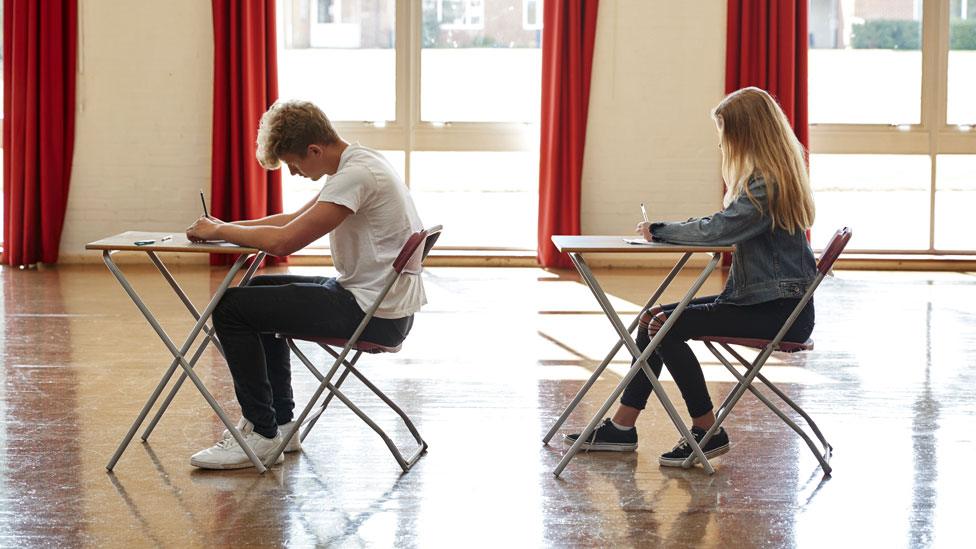Poorer pupils falling further behind, study finds
- Published

Pupils living in long-term poverty are even further behind their peers, the study found
Poorer pupils in England are "significantly" behind their peers with the largest gap in attainment found in an area of Lancashire, a report has found.
Before the pandemic in 2019, the study showed the gap between poorer pupils and their peers was about 18 months.
The largest discrepancy, of about 25 months, was found in Blackpool.
The gap has fallen slightly since 2011, but the report said progress seems to have "stalled of late".
Pupils living in long-term, persistent poverty are even further behind their peers, the Education Policy Institute, external (EPI) said.
The persistent disadvantage gap was equal to about 23 months of learning and there has been almost no improvement in this measure over the last decade.
The EPI said policymakers need to do more to tackle the gaps, especially in neighbouring Wales, where the gap was "notably worse".
But the researchers said comparisons between England and Wales can be "challenging" because English qualifications were reformed in 2015, while performance measures across the two nations have changed over time.
'Ambitious target'
The EPI said targeting extra funding at poorer schools had proven effective in narrowing the disadvantage gap, and that more funding should be specifically targeted at pupils experiencing persistent poverty in both nations.
The institute said measures such as attracting high-quality teachers to poorer areas through salary supplements, and one-to-one and small group tutoring had also been shown to reduce attainment gaps.
The government's flagship National Tutoring Programme aims to help pupils catch up on learning missed during the pandemic, but the decision to scrap a focus on the poorest pupils has been criticised by social mobility experts.

The government said it would do more to help schools as part of its levelling up ambitions
The government has also announced a levelling up premium for teachers, where eligible maths, physics, chemistry and computing teachers can receive a premium of £3,000 for teaching in poorer areas from 2022 to 2025.
EPI research fellow Luke Sibieta said: "The gap in education outcomes between poor children and the rest is far too wide.
"Policymakers need to re-double their attempts to give poorer children a better chance in life."
A Department for Education spokesman said: "Since 2011, we have narrowed the attainment gap between students from disadvantaged backgrounds and their peers at every stage of education up to the pandemic.
"We are committed to levelling up opportunities for all, which is why we have set an ambitious target for 90% of children to leave primary school at the expected standard in reading, writing and maths by 2030."

Why not follow BBC North West on Facebook, external, Twitter, external and Instagram, external? You can also send story ideas to northwest.newsonline@bbc.co.uk, external
- Published18 July 2022

- Published22 June 2021
